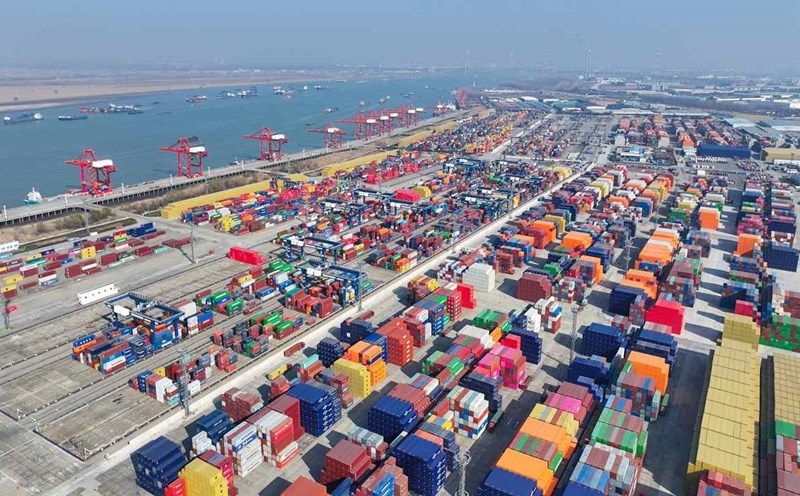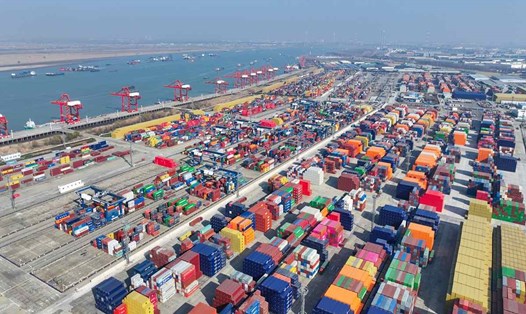Shortly after the 10% tariff on Chinese goods exported to the US took effect at 12:01 a.m. ET on February 4, China responded with a 15% tariff on some goods imported from the US. China's tariffs are scheduled to take effect on February 10.
China's Ministry of Commerce also added two US companies, Illumina and PVH Group, to its list of unreliable entities, significantly affecting their ability to do business in China.
CNN pointed out that it is possible that President Donald Trump and Chinese President Xi Jinping will agree to postpone tariffs to continue dialogue, similar to what the leaders of Mexico and Canada have done.
“If we don’t get a similar deal, I think the situation is likely to escalate,” said Clark Packard, a research fellow at the Herbert A. Stiefel Center for Trade Policy Studies at the Cato Institute.
The best outcome for the current developments in the US-China trade war is to avoid further escalation.
CNN reports that the current US-China trade war is having an impact on the US economy. The tariffs that President Trump has imposed on Chinese goods could force American consumers to spend more money on consumer goods, such as electronics, toys and clothing.
Many U.S. companies import raw materials from China, such as rubber, plastics and chemicals, to make finished products that they sell in stores and online. “Increasing import costs will be a pain for these companies,” Packard said.
Still, prices may not rise as much if U.S. businesses can import goods (which come from China) from other countries with lower tariffs. The loss of customers could hurt Chinese businesses and lead to job losses.
Similarly, US businesses exporting goods to China that are about to be hit with new tariffs could be affected and forced to lay off staff.
The new tariffs would affect $23.6 billion worth of Chinese imports from the U.S. in 2024, according to data from S&P Global Market Intelligence. That figure would be much higher if China imposed a 10 percent tariff on all U.S. goods entering China. U.S. exports to China totaled more than $130 billion last year.
Morgan Stanley economists believe that President Trump will not stop at imposing a 10% tax on Chinese goods because during the 2024 US presidential campaign, he pledged to increase the tax to 60%.
“We still expect the US to impose additional tariffs on China later this year as part of its broader trade policy objectives,” Morgan Stanley said in a note to clients on February 4. This could lead to more retaliatory measures from China.
Another concern is that the U.S. will not face a trade war with China alone, but with three other countries. That could happen if President Trump imposes 25% tariffs on Mexico and Canada after the recently extended deadline of March 1. Canada and Mexico, as well as China, could retaliate by raising tariffs on U.S. goods. The U.S. economy could quickly suffer.
For example, Canada and Mexico responded by imposing 10% tariffs on all US goods, China imposed 5% tariffs on all US goods, Citibank economists predict the US economy will shrink at an annual rate of 0.8% this year and 1.1% next year while those tariffs remain in place.
However, China's economy will shrink less than the US's this year and next. Citibank economists predict that the Canadian and Mexican economies will be hit much harder than the US.
Nathan Sheets, global chief economist at Citigroup, told CNN that the risks from the US-China tensions alone are serious. “A more significant increase in tariffs could disrupt supply chains and manufacturing, which could have negative impacts on US jobs and growth. It’s really hard to put a number on those impacts, but they would be significant by any measure,” he said.











